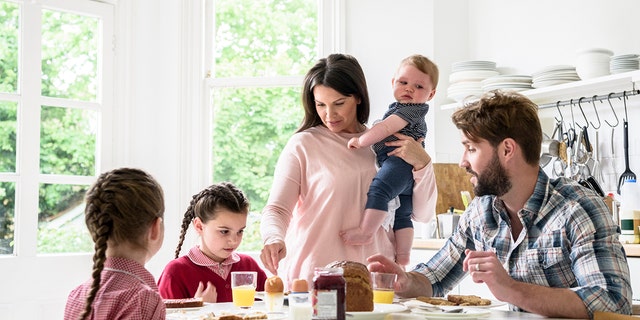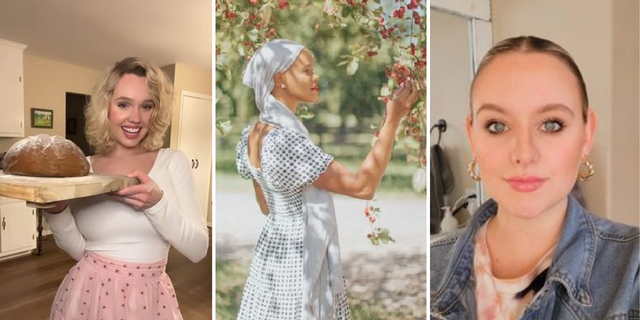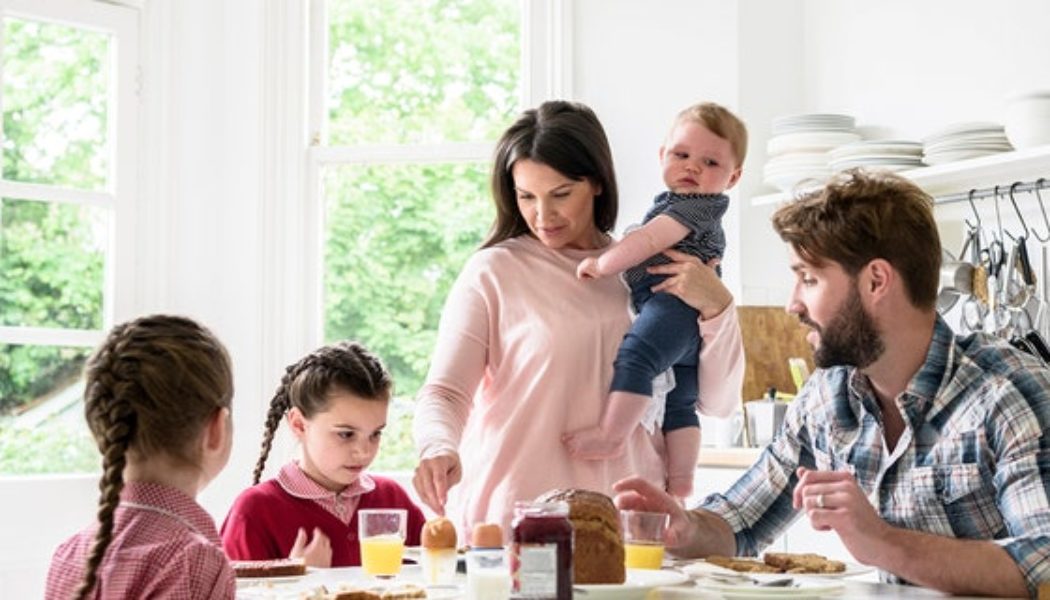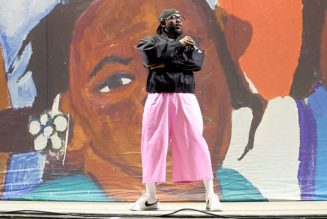Women who choose to stay at home to care for their families and households are hardly unique to American society, but social media users today appear fascinated with “tradwives” (short for traditional wives) and the lifestyle content they’re creating for others.
That fascination has shown itself largely through negative commentary.
“Many [people have] questioned the tradwife philosophy and why any sentient being would adhere to it,” said Deborah Etienne, a content specialist from Boston.
“Many others [have] deemed the trend alarming, frightening, creepy, a too-good-to-be-true alternative to life, a way to cheat your way out of hard work, a form of anti-worker activity similar to union busting and a ‘White supremacy’ concept,” Etienne also told Fox News Digital in an interview.
But those who practice the tradwife lifestyle are pushing back on the critics. Said one tradwife from Virginia to Fox News Digital, “Honestly, I love this lifestyle. And I feel like I always wanted it.”
Read on for more revelations about — and controversy connected to — today’s “tradwife” lifestyle.
What is a ‘tradwife’?
Tradwives, a newly coined term for traditional wives, is a subculture of housewives who believe in clear gender roles, the importance of homemaking and a patriarchal marriage, according to many women who self-identify as tradwives.
Tradwives are women who honor femininity, care for their husbands, children and family, and value the state of their home more than they do a salary, yet are not subservient, according to the Darling Academy, a British website.
“Though a traditional housewife may submit to her husband, she is not considered of lesser importance to him, or allows herself to be in a position that threatens her right,” says the group’s “What is a Trad Wife?” guide.
“A traditional woman’s place is not under a man’s feet, but under his wing, by his side.”
Over 152,000 mentions of ‘tradwife’
Etienne of Boston has been examining the rise of tradwife mentions on social media since 2022 for Brandwatch, a MarTech company that analyzes online public conversations.
“Over the past year, there were more than 152,000 mentions of the term ‘tradwife’ on social media,” she told Fox News Digital.
MORE COLLEGE-EDUCATED WOMEN ARE HAVING BABIES BEFORE MARRIAGE: STUDY
The term tradwife grew in the last year and reportedly had its “largest conversation spike of more than 25,000 mentions” — a 128% increase in monthly conversation volume surrounding tradwives, said Etienne of Brandwatch data.

From December 2021 to December 2022, the social media hashtag #tradwife reportedly received over 4.6 million impressions, according to Brandwatch. (iStock)
From December 2021 to December 2022, the social media hashtag #tradwife received over 4.6 million impressions, Brandwatch found.
Yet 92.73% of searchers had a negative view of tradwives — while just 7.26% of searchers had a positive sentiment, according to Brandwatch data.
Tradwives have been “pushing back” on this, said Etienne. They believe society could benefit from adopting elements of the tradwife lifestyle because “the most important duty is taking care of one’s children.”

Tradwives view themselves as homemakers, with a family-first focus. (iStock)
Online content about tradwives apparently “skyrocketed” after the COVID-19 pandemic as people used social media differently than before, according to Brandwatch.
“Some social users expressed that platform algorithms are boosting both tradwives and sex work … instead of women workers fighting back for better rights,” Etienne said.
“Many users questioned the tradwife philosophy and questioned why any sentient being would adhere to it.”
On top of that, many stay-at-home moms have said that “being a housewife is not the same as being a tradwife.”
Other online conversations include discussions about “old-fashioned values” and women who want to get married and have children while still having careers, Brandwatch found.

Estee Williams (left) and Hannahlee Yoder (middle) are two tradwives who make TikTok video content in their spare time — Fox News Digital talked to them both, as well as to Madison Dastrup (right), who revealed why she no longer calls herself a tradwife. (Estee Williams/Hannahlee Yoder/Madison Dastrup)
Fox News Digital spoke with two tradwives and a former tradwife about the rise of traditional wife content on social media.
Virginia ‘tradwife’ Estee Williams: ‘Got inspired’
Estee Williams, 25, a proud tradwife from Richmond, Virginia, traded in her love of weight-focused bodybuilding and form-fitting activewear for lower–impact workouts and flowy dresses leading up to and after her January 2023 wedding.
“I keep those pictures up to not just show the end transformation,” Williams told Fox News Digital in a phone interview. “I try to show the whole path.”
TIKTOK FASHION TREND INSPIRED BY ‘BRIDGERTON’ BRINGS HISTORICAL SUBCULTURES TO MAINSTREAM
For Williams, being a stay-at-home wife was an early aspiration. It likely happened, she said, after she saw her mother struggle to balance child care and jobs after her divorce.
“I got inspired mainly by the way I grew up and wanting the opposite of what I grew up with,” said Williams, who described her childhood and upbringing as “hectic” due to frequent family moves.
“The little time that we saw my mother, I really took it to heart,” Williams recalled. “I just remember thinking that I never want this life.”
“I want to call a place home,” she continued. “When we have children, I want our children to feel at home.”
Williams said she believes she “suppressed” her stay-at-home wifely desires because society “frowns upon” it. Instead, she pursued a college education after high school.
“He gave me the option to stop working and start with the lifestyle now.”
That changed when she met her husband, Conner Williams, 23, three years ago, and learned on their first date that he, too, admired the traditional.
“Before we got engaged, I dropped out of college and took on nannying,” Williams said. “When we got engaged, we talked about this whole [tradwife] lifestyle, and he gave me the option to stop working and start with the lifestyle now or wait ’til we got married. I chose the former.”
THREE MOMS REVEAL HOW INFLATION HAS FORCED THEM TO MAKE LIFESTYLE SACRIFICES TODAY
Her husband works as an electrician; the couple lives in a three-bedroom, three-bathroom house in the suburbs.
As a newly married homemaker, Williams does cooks and bakes most of their meals from scratch, which usually takes her four to five hours a day. She also cleans and gardens.

Estee Williams, 25, of Virginia posts a comedic lip-sync skit on TikTok using the theme song from Disney Jr.’s “Sofia the First” TV show to allude to the princess-like transition she made from college student to housewife. (Estee Williams)
When not handling household chores, Williams reads, exercises, goes figure skating or works on makeup application, she said.
“Honestly, I love this lifestyle. And I feel like I always wanted it,” she said.
She began sharing tradwife videos on TikTok in March 2022; her account has gained over 84,100 TikTok users. Once she started posting, she said, “that’s when I found more people.”
This wife rejects sponsorship offers in favor of sharing her “purpose and message” with others.
Williams doesn’t make money from her TikTok content, she said. She rejects sponsorship offers in favor of sharing her “purpose and message.”
Social media users who find her videos often associate her with the 1950s due to her homemaker lifestyle, curled hair and current choice of dress.

Williams says her personal style changed after she cut her hair and got engaged. She only wears gym attire now when working out, she said. She hopes her tradwife TikTok content shows women they can give themselves room to evolve if they’re not content with life. (Estee Williams)
“My style changed when my hair changed and that was not intentional,” Williams said. “I had platinum blonde hair with long fake hair extensions, and I was into that whole look for years.”
WHAT LIFE WAS LIKE 50 YEARS AGO IN AMERICA, COMPARED TO NOW IN 2023
Despite her vintage style, she’s not pushing for a return to the ’50s as some critics suggest, Williams said.
“Time has changed for the better. It’s also changed in bad ways as well. That’s always how it’s going to be, I think,” Williams said. “But feminism started with choice. Now it’s definitely gotten into this weird mix of all sorts of things. Some people have a problem with what I’m posting about my lifestyle, so it’s clearly not all about choice anymore.”
“Some people have a problem with what I’m posting … It’s clearly not all about choice anymore.”
Williams believes the tradwife lifestyle isn’t oppressive when a woman freely chooses to stay at home.
Some people have pointed out, she said, that being dependent on her husband could put her at financial risk in case of divorce or unexpected death — but she prefers to have faith that things will work out.

Williams is shown trying on her mother’s long-sleeve wedding gown, which she later wore on her own wedding day. “I don’t believe in a backup plan,” she said of her lifestyle choice to focus solely on her husband. (Estee Williams)
“This might be naïve, but I didn’t go into our relationship or our marriage with one foot in the door and one foot back out just in case,” Williams said. “I didn’t finish college to have it as a backup. I dropped it altogether to solely focus on my husband. I don’t believe in a backup plan. I believe if something happens, you’ll get through it.”
For women contemplating the tradwife lifestyle or aspects of it, Williams said they should allow themselves time and grace to figure out what they want.
“It’s important to have a world full of variety.”
“If women want to work, then work — do what makes you happy. We live in a ‘boss babe’ culture,” Williams said. “But there shouldn’t be hate or negativity surrounding a woman wanting to focus on her family and reject[ing] the idea of a career.”
‘BIRTHING MAKEUP’ DIVIDES WOMEN ON TIKTOK AS MOMS GO ‘FULL GLAM’ FOR LABOR AND DELIVERY
She added, “There’s nothing more fulfilling than focusing on your family and giving your husband or your husband and children a beautiful home,” Williams continued.
“It’s important to have a world full of variety.”
Said another tradwife in Georgia, Hannahlee Yoder, 26, whom Fox News Digital also spoke to, “We decided early on that I would be doing the whole homemaking housewife role — and he [her husband] would be doing the ‘break-your-back-in-the-field’ type of work.”
She added, “It works for us.”
Former ‘tradwife’ Madison Dastrup of Utah: ‘Saddens me’
Madison Dastrup, 24, a stay-at-home mom of two in Cedar City, Utah, initially gained a following on TikTok for her tradwife content.
But in September 2022, Dastrup shocked others when she revealed she no longer identified as a tradwife now that some “extremists” have given the subculture a bad name.
THESE WERE THE TOP BABY NAMES 50 YEARS AGO: SEE IF YOURS MADE THE LIST
In her PSA video, viewed over 77,800 times, Dastrup said that while she still upholds traditional values, she doesn’t wish to associate herself with controversial TikTok personalities whose content supports White supremacy and disregards sexual consent in marriage.
“I do not condone the behavior that the tradwife movement has come to, and it really saddens me that it’s gotten to that point,” she said in her video.
Dastrup told Fox News Digital she “lost a lot of followers” after her announcement.
She also shared the name of a TikTok content creator who made the controversial videos she referenced; those videos were removed and earned the user a temporary ban.
“I don’t think people who identify as traditional are racist.”
“I have four African American siblings, and I didn’t feel comfortable with that misconception,” Dastrup said. “I don’t think people who identify as traditional are racist.”
She added, “I think there’s obviously going to be racist people in the world and maybe there are a few in the movement, but there are just racist people everywhere.”
She went on, “I don’t necessarily think it’s because of that specific movement. We also have lots of African American women who identify as tradwives.”

Tradwives who post lifestyle content on TikTok are often seen wearing dresses. But one former tradwife told Fox News Digital why she’s no longer wearing dresses these days. (GraphicaArtis/Getty Images)
Recently, Dastrup updated her TikTok account’s handle from “The Reserved Wife” to her legal name.
Dastrup said she’s distanced herself from the tradwife label because she thinks some people seem to have “fetishized the movement.” She noticed that, she said, when she stopped dressing the way her followers believe traditional wives should dress.
As a former tradwife, she said she thought she had to post social media content of herself wearing dresses because she saw other tradwives online doing it.
“I do think a lot of people can fetishize tradwives a little bit.”
“When I stopped posting in dresses and stuff, a lot of my content just kind of flopped,” Dastrup said. “I didn’t mind it, but after becoming a mom to two kids, it’s really hard to do while in dresses.”
She said her main style today is “really just sporty chic. Lots of leggings, activewear and sneakers. Comfortable clothing.”
FOLLOW US ON FACEBOOK FOR MORE FOX LIFESTYLE NEWS
Dastrup got married on April 7, 2018. She said she doesn’t agree that wives with traditional values have to give up school or work outside the home in order to be considered traditional.
Today she attends cosmetology school and works part-time as a nail technician, while her husband, Dallin Dastrup, 27, works in heating and air.
The pair are raising two young daughters. They also have a pet dog and a brood of chickens in their three-bedroom, two-and-a-half-bathroom home.
Her thoughts on traditional living, she said, were likely shaped by her upbringing.
Her mother stayed home for years and reentered the workforce once Dastrup was enrolled in high school.
“Really, it’s just what works for your own family.”
But Dastrup said she didn’t know she’d be able to be a stay-at-home mom because her husband, Dallin Dastrup, encouraged her to keep working.
“He grew up with his mom working,” Dastrup said. “But when I got pregnant with my first daughter, I had really bad morning sickness. I told him I wanted to stay home, and he agreed. Then he realized he really liked me at home.”
CLICK HERE TO SIGN UP FOR OUR LIFESTYLE NEWSLETTER
When Dastrup is able to, she said she likes to go thrift shopping, listen to music and take long walks. She’s also trying gardening and homesteading, as she thinks it’s important to learn how to grow food.
Like other homemaking content creators, Dastrup said she turned to social media because she didn’t have many friends who could relate to her lifestyle.
“I felt so like alone … Not a lot of people nowadays like staying at home,” Dastrup explained.
“I stayed home before I had kids, which is even rarer. So, I guess I just didn’t see a lot of representation at the time.”
CLICK HERE TO GET THE FOX NEWS APP
Although Dastrup no longer labels herself a tradwife, she said there are still misconceptions about tradwives believing their lifestyle choice is the only way to be.
“People love to twist your words,” Dastrup said. “But really, it’s just what works for your own family.”









